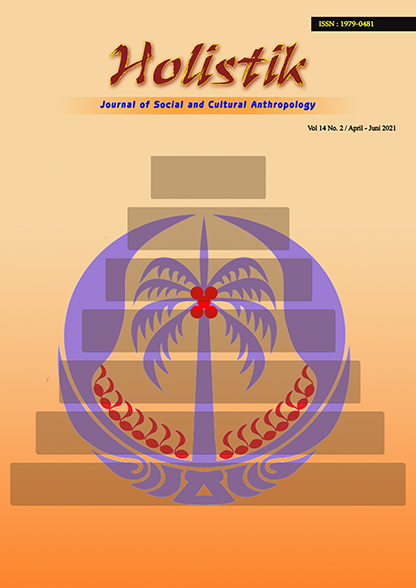ADAT PERKAWINAN SUKU BANGSA TOBELO DI DESA LOLEBA KECAMATAN WASILE SELATAN KABUPATEN HALMAHERA TIMUR
Abstract
Marriage as one of the life-long stages of an individual's life in anthropology is often called stages along the life cycle or for example infancy, weaning, childhood, adolescence, puberty, post-marital periods, pregnancy, old age and so on. In times of transition, the time of the individual’s switches from one level of life to another, usually a feast or ceremony is celebrated during the transition.
Marriage has social functions, such as when preparing for the implementation of the wedding procession, requiring the help of others to strengthen public relations through mutual assistance. Marriage can also unite two or more cultures. Because there is no prohibition in the implementation of different ethnic marriages, by the state.
Loleba community is one of the communities that has various forms of culture, both dances, regional music, local languages, and traditional wedding activities. Tobelo traditional wedding ceremony and most of the culture is the result of the copyrighted work of their ancestors who come from Halmahera and is one of the traditions that have meanings that are very valuable for social life.
The indigenous community of Tobelo tribe who have long settled and live in Loleba Village East Halmahera still maintain Mohoka tradition in their wedding culture. In this Mohoka tradition there are several values contained in it, which the value has a meaning that describes the daily life of the Tobelo people in Loleba Village East Halmahera, the values contained in the cultural activities and customary practices of Mohoka tradition, namely: religious values, cultural values, social values, personality values and the value of knowledge.
Keywords: marriage, tradition, ceremony

